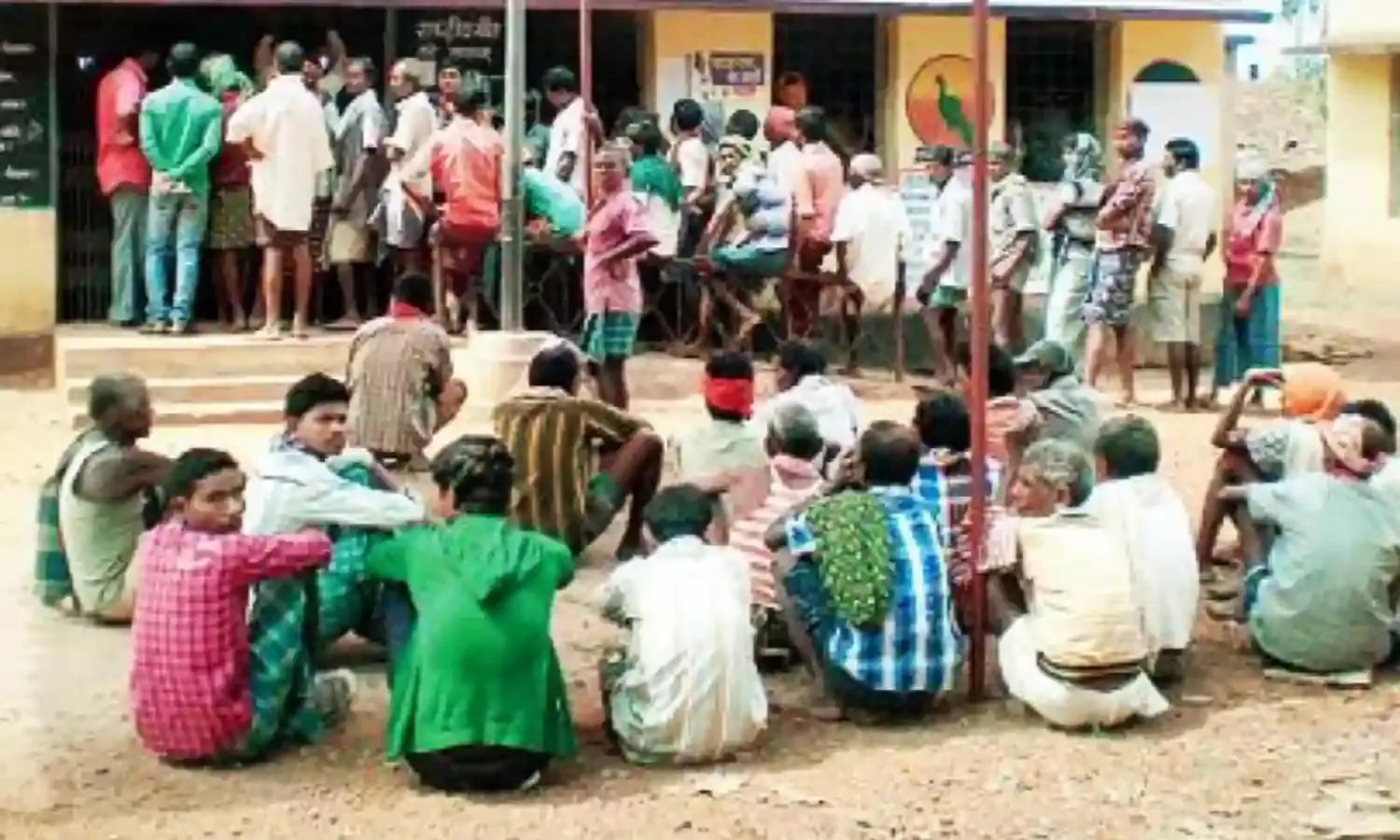BJP Wiped Out in Scheduled Tribe Constituencies of Chhattisgarh
Attempts to create a Hindu vs Christian issue also failed

NEW DELHI: The Congress won in Chhattisgarh with a clear majority of 68 seats out of 90. The BJP came in second with 15 seats.
In the Chhattisgarh Assembly, 29 seats are reserved for candidates from the Scheduled Tribes, who form 31 percent of the state’s population.
The Election Commission determines which seats to reserve for SC or ST candidates, based on the predominant community in each district.
In 2013, of the 29 seats reserved for ST candidates, the BJP won 18 and the Congress 11.
But now the picture has changed drastically. The BJP now holds just three of the seats reserved for STs, while the Congress holds 25. The victory margins of the Congress too have increased overall, and the party’s vote share dipped only in Ramanujganj, Samri and Pali Tanakhar.
The BJP retained Bindranawagarh with a considerably diminished margin of votes, and took Rampur and Dantewada from the Congress.
And the 29 seats, which were earlier divided between BJP and Congress, now have a third player: the Janta Congress Chhattisgarh (Jogi)’s Ajit Jogi, who won the Marwahi seat by a huge margin, taking it from the Congress which came in third.
Six of these 29 seats lie in the so called Red Corridor area of Chhattisgarh. The Congress won five of them: Bastar, Bijapur, Kanker, Jaspur and Narayanpur.
Across the state as the whole the Congress’s vote share was 43 percent, and the BJP’s was 33 percent. The JCC(J) in alliance with the Bahujan Samaj Party came in third with 12 percent of the votes.
Clearly, there has been a huge shift in Adivasi votes in favour of the Congress. (The RSS/ BJP still prefers the term Vanvasi, meaning forest dweller, to Adivasi or first dweller.) The Citizen interviewed the activist Swami Agnivesh and former journalist Ruchir Garg to find out why.
According to Agnivesh, “Adivasis have been harbouring anger for a very long time and they have silently taken revenge against the Raman Singh government. They have been exploited. There was a strong anti-Kalluri emotion among the Tribals, as he is guilty of many crimes in the Bastar and Sarguja area. Tribals have been put into jail on the pretext of being Naxalite or Maowadi. Thousands of Tribals are behind bars in Durg Jail where they don’t have basic facilities, they can’t meet their families and they can’t hire a lawyer.
He added, “Not only Tribals but Dalits and Backward Castes too have been very angry at this government. They accuse Raman Singh of neglecting them and favouring upper-caste and non-Chhattisgarhi people.”
To paper over its corruption, Agnivesh said, “the Raman Singh government has been driving away human rights activists like Nandini Sundar and Sudha Bharadwaj, who have been working for the Tribals. This has led to massive discontent among the Tribals.”
Agnivesh added that he himself has faced attacks led by former Inspector-General S.R.P. Kalluri. “Raman Singh’s government has been indulging in corruption worth thousands of crores on the pretext of driving Naxals out of these areas.”
The vote swing therefore, “more than the liking for Congress, it was animosity for the BJP.”
Ruchir Garg, a journalist from Chhattisgarh who recently joined the Congress, had a similar view. “It’s the anger of 15 years that led to this result. For 15 years the definition of development for BJP was denying the Tribals their autonomy, snatching away their jal, jangal aur zameen (water, jungle, land) and denying them their Forest Rights by bringing in ordinances to change the laws.”
Garg added, “Their development means building an air strip in the Bastar region, whereas the Tribals wanted them to root out naxalism, give loan waivers and guarantee a fair price for their crops.”
“Tribals are being denied their fundamental democratic rights. They have tried to give away Tribal lands illegally to the corporates. For instance the Raman Singh government tried to privatise the new NDMC plants,” said Garg.
In a failed ploy, he added, “the BJP tried to communalise the Tribals of Chhattisgarh. To further their politics of Hindutva they tried to make it a Hindu versus Christian issue. This hasn’t gone down well with the people.”



